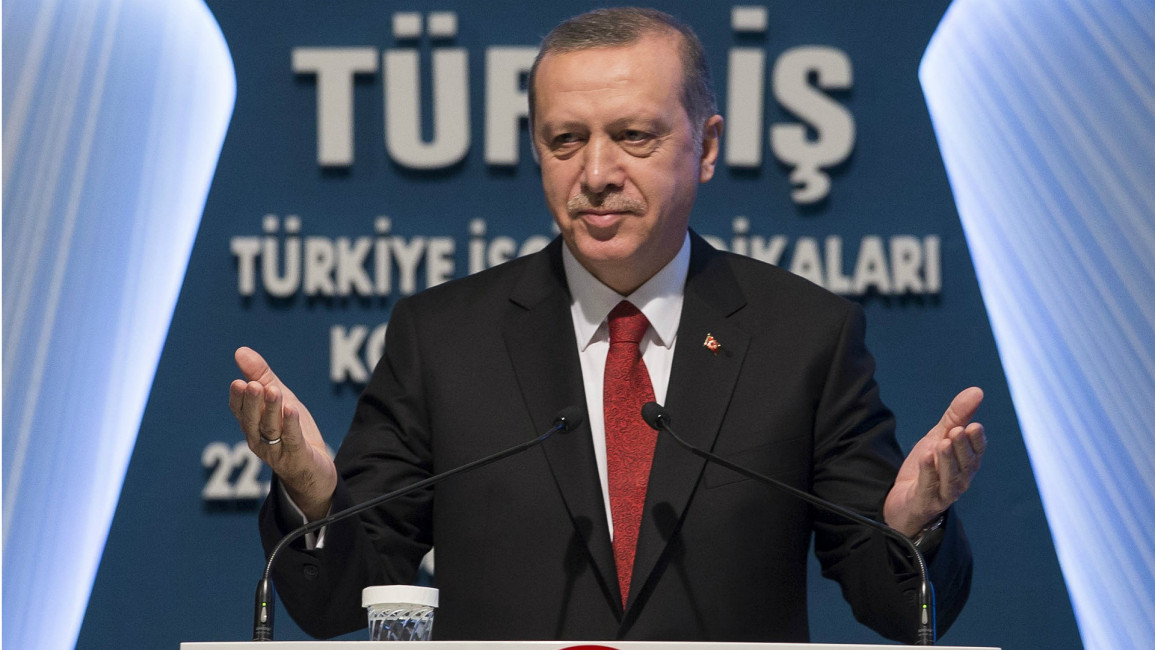Turkey seeks alternatives to Russian energy after plane crisis
Turkey on Saturday said it was seeking alternatives to Russian energy as relations with Moscow plunge over the downing of a warplane, with President Recep Tayyip Erdogan vowing his country will "not collapse" under sanctions.
Moscow has imposed a series of economic sanctions against Ankara after Turkish fighter jets shot down a Russian jet on the Syrian border on 24 November, sparking the biggest crisis between the two countries since the Cold War.
Turkey says the plane strayed into its airspace and ignored repeated warnings, while furious Moscow insists it did not cross from Syria and has accused Ankara of a planned provocation.
Energy-hungry Turkey relies on Russia for 55 percent of its natural gas and 30 percent of its oil, but Erdogan indicated that Ankara is now seeking new suppliers in the wake of the plane crisis.
Russia buys about $1 billion worth of Turkish food and other products annually and is Turkey's number one energy provider, shipping gas, coal and oil.
It is also due to build Turkey's first nuclear power station in the town of Akkuyu, a deal worth $20 billion.
"It is possible to find different suppliers," Erdogan said in a televised speech in Istanbul, referring to Qatar and Azerbaijan.
The Turkish strongman visited Qatar this week and agreed a liquified natural gas deal, while his Prime Minister Ahmet Davutoglu travelled to energy-rich Azerbaijan.
Addressing concerns over possible gas shortages, Erdogan said Turkey could turn to its renewable energy resources.
He said Russia had made "no sign" yet that the crisis would affect their energy partnership, including joint work on the Akkuyu nuclear plant in southern Turkey.
Russian energy minister Alexander Novak said Thursday that talks had been suspended with Ankara on the joint TurkStream project, to pipe gas to Turkey and southern Europe.
But Erdogan dismissed the remark as a "lie", saying that in fact Turkey suspended the project because of Russia's "non-compliance with our demands".
'We will stand firm'
Russian President Vladimir Putin has vowed that Turkey will be made to regret the downing of the plane, with the Kremlin announcing sanctions including a ban on the import of some foods and a halt on sales of holiday packages, a major blow to Turkish tourism.
But experts suggest the initial impact of the sanctions will likely be limited, with Nafez Zouk of Oxford Economics pointing out that only around four percent of Turkish imports made it to Russia this year.
Erdogan said Saturday that he does not care whether Russia imports goods from Turkey or not.
"Turkey is not a country which will collapse with your ... one billion dollar imports," he declared. "We will stand firm."
He pointed out that unlike other countries, Turkey did not launch sanctions against Russia over the Ukraine crisis.
"We continued to export goods. When they asked us why we shipped, we replied that Russia was our strategic partner," Erdogan said.
The president also lashed out at what he said were Moscow's attempts to escalate the crisis.
"We are not speaking with their language now. We are speaking a diplomatic language. We are patient on this issue," he said.
Foreign Minister Mevlut Cavusoglu called for dialogue with Moscow to "narrow our differences" after meeting with Russian counterpart Sergei Lavrov on Thursday, in the first high-level contact between the two sides since the plane was shot down.



